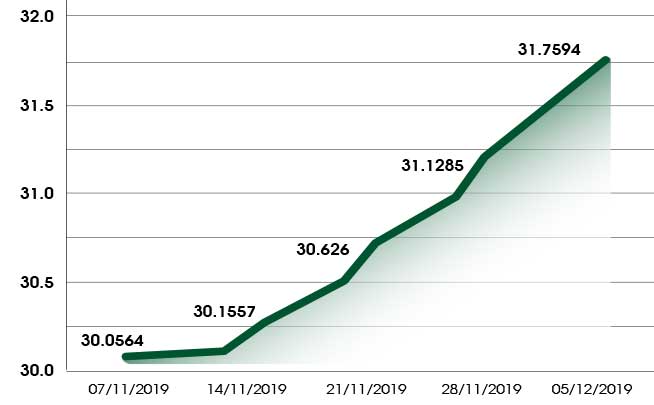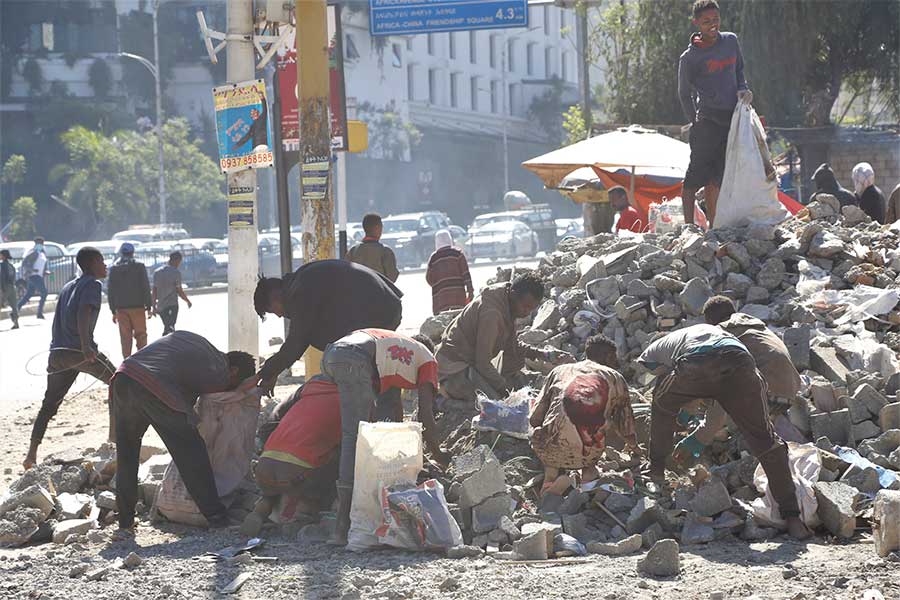
Advertorials | Feb 06,2024
I sat with a friend over coffee one of the days last week, evaluating the worth of our daily investments. In the midst of our conversation, she called me a 'fault finder' which spurred my college memories.
It was a label I had earned from past employers, including the last one where we worked together. But I was not looking for faults in others but assessing the value of investments in time, money, and relationships.
I am not a fault-finder, I told my friend. I am a problem-solver.
Deep down, I knew my ex-employers needed someone to call out their faults and find solutions to their problems and that was exactly what I did. I became a fault-finder, a problem-solver, and above all, a game-changer.
Ahh… it all started with that course with its intimidating title- Work Design. The endless lectures on theories and techniques for improving productivity and safety in the workplace hardly seemed relevant at the time.
But there was a chapter, nearing the end of the semester that caught my attention like no other- Value Analysis. It was a technique for breaking down and scrutinizing every element of a product or service to determine ways to make it more efficient and cost-effective.
I remember sitting in the dusty classroom, infused with a faint smell of chalkboards, as the instructor regaled us with tales of manufacturing processes and supply chain management. Yet, it was that lesson on Value Analysis that stayed with me long after the class ended.
It is funny how memory works. I can hardly recall the hazy smile on the face of a girl I had a crush on but it is the minutiae of Value Analysis that truly stuck with me.
Concepts such as function analysis, value engineering, and value index calculations still play out in my mind years later.
My initial post-college employment was a role within a government-owned construction behemoth. It was a conglomeration of several separate sub-companies, each operating like their own distinct tribes.
Before long, I had gained the undistinguished moniker of the "fault finder." Regardless, I was staunch in my determination to perform to the utmost of my abilities. The public enterprise was hard-pressed, reeling from years of operation sans a coherent system. Construction, supervision, and payment were dispersed among a variety of departments, yielding utter chaos.
Amidst the mixed economy announcement by the Dergue regime, the initial explication from the World Bank involved restructuring and fragmentation of the enterprise. And there I stood, right in the thick of it all.
My sole focus was the daunting roster of personnel that required management, all with limited resources at my disposal.
Establishing a database for human resources with 10,000 plus employees from several sectors was no small task. But I took the challenge head-on and never lost sight of the saying difficult things take a long time, impossible things a little longer. I proposed a visit to Ethiopian Airlines' database centre and was warmly welcomed.
The computer system, a marvel of modern ingenuity, was a sight to behold. I remember asking the caterer for its whereabouts and being told it rested in Atlanta, Georgia. This information hit me with such force that I had to take a moment to gather myself.
Undeterred, I rallied a team of young professionals and typists to join me in rewriting and editing our work. We faced resistance from data processing, but I pushed forward with the unwavering inspiration of Sinidu, the tireless and organized personnel record officer.
I reminded myself, drawing on my own experience to fuel my determination.
Our efforts were not enough to keep the government from shutting us down citing our inability to keep an accurate record of our human resources.
I refused to see this setback as a defeat. Instead, I saw it as a foundation for future endeavours, a bedrock of knowledge from which I could launch new assaults upon my ambitions.
My ambitions were too great to be contained by the bounds of my current surroundings, and so I bid farewell to the water enterprise. I set out once more in search of new frontiers to conquer, always keeping the lessons of my past close at hand.
My fellow high-minded colleagues, impressed by my fault-finding humour, bestowed upon me the task of overlooking another company's insurance program. I saved the company millions of Birr, yet the CEO refused to see the virtue of such savings.
I suggested insurance covers for machinery breakdowns, which would encourage preventive maintenance, but they were never utilized. Thus, millions went down the drain.
In my journey towards finding fault, I have come to realize the importance of intention and purpose in our interactions as humans. This can only be achieved by approaching others with empathy and an open mind, actively listening and honestly speaking. The process of becoming valuable lies in staying true to our values and treating others with the respect they deserve.
As Hemingway once wrote, we spend our whole life stuck in the labyrinth, thinking about how we will escape one day, and how awesome it will be, and imagining that future keeps us going, but we never do it.
The cost of living is a burden that everyone bears, but Hemingway reminds us that the cost of true joy is worth every penny.
With my friend, I vowed to invest in relationships that uplift us and reduce consumption of unnecessary items, thus, living a more fulfilling life. The reassessment of our investments not only prepares us for the current economic situation but also brings us closer to living a life that is meaningful.
The search for beauty, the courage to take risks, the discipline to tell the truth and the capacity for sacrifice come at the cost of being vulnerable, wounded or destroyed. And yet, they are crucial virtues to addressing real-life problems and becoming truly valuable.
For me, the term "value analysis" has become a way of life. It has made me aware of the importance of being something of value in every aspect of my life.
We must take the time to reflect on what truly matters and make choices that align with our values. It is only then that we can become truly valuable.
PUBLISHED ON
Apr 29,2023 [ VOL
24 , NO
1200]


Advertorials | Feb 06,2024

My Opinion | Jul 20,2019

Fortune News | Dec 07,2019

Radar | Feb 27,2021

Radar | Jun 01,2024

Sponsored Contents | Jan 31,2022

Radar | May 13,2023

My Opinion | Oct 21,2023

Commentaries | Oct 07,2023

Life Matters | Sep 08,2024

Dec 22 , 2024 . By TIZITA SHEWAFERAW
Charged with transforming colossal state-owned enterprises into modern and competitiv...

Aug 18 , 2024 . By AKSAH ITALO
Although predictable Yonas Zerihun's job in the ride-hailing service is not immune to...

Jul 28 , 2024 . By TIZITA SHEWAFERAW
Unhabitual, perhaps too many, Samuel Gebreyohannes, 38, used to occasionally enjoy a couple of beers at breakfast. However, he recently swit...

Jul 13 , 2024 . By AKSAH ITALO
Investors who rely on tractors, trucks, and field vehicles for commuting, transporting commodities, and f...

Jun 28 , 2025
Meseret Damtie, the assertive auditor general, has never been shy about naming names...

Jun 21 , 2025
A well-worn adage says, “Budget is not destiny, but it is direction.” Examining t...

Jun 14 , 2025
Yet again, the Horn of Africa is bracing for trouble. A region already frayed by wars...

Jun 7 , 2025
Few promises shine brighter in Addis Abeba than the pledge of a roof for every family...